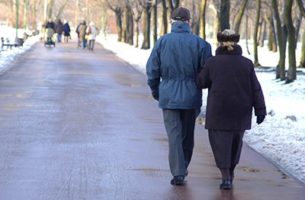Metabolic syndrome – patient information In this article we will describe 10 facts for patients about metabolic syndrome. Let’s start with the basics. 1. Definition Metabolic syndrome is a cluster of conditions that tend to occur together, increasing your risk of ischaemic heart disease and stroke. Not all think it really exists. More about that later. 2. What […]
Read More10 epilepsy facts In this article we will describe 10 medical revision notes about epilepsy. Key Points Epilepsy is a neurological disorder characterized by recurrent, unprovoked seizures resulting from abnormal electrical activity in the brain. It affects people of all ages, with a variety of causes, ranging from genetic factors to structural brain abnormalities. Management […]
Read More10 dementia facts Here we cover 10 medical revision notes about about dementia. Key Points Dementia is a chronic, often irreversible decline in cognition, significantly affecting daily functioning Diagnosis is clinical; blood tests and imaging help to identify reversible causes. Acute confusion (delirium) is the main differential diagnosis Unlike age-related memory loss and mild cognitive […]
Read More10 most common tablets for chronic heart failure In this article we will describe the 10 most common tablets for chronic heart failure (CHF). It is also called CCF (congestive cardiac failure). Diuretics 1. Bendroflumethazide (thiazide diuretic) or furosemide (loop diuretic) These are sometimes known as ‘water tablets’, because they remove excess fluid from the body, including from […]
Read MoreWhat are the 10 most common painkillers? We will now describe the 10 most common painkillers. There are two major groups of analgesics: anti-inflammatory analgesics and opiates. Anti-inflammatory analgesics Anti-inflammatory drugs work by reducing inflammation (swelling) at the site of the pain. Examples include: 1. Paracetamol 2. Aspirin 3. Nonsteroidal anti-inflammatory drugs (NSAIDs) – such as […]
Read MoreWhat are the 10 most common blood pressure (BP) tablets? Ramipril – dose 2.5-10mg OD Losartan – 25-100mg OD Amlodipine – 2.5-10mg OD Bendroflumethazide (BFZ) – 2.5-10mg OD Furosemide – 20mg- 250mg OD (or 120 mg BD) Bisoprolol – 2.5-10mg OD Doxazosin – 1mg OD – 8mg BD Methyldopa – 250mg BD – 1g TDS […]
Read MoreWhat are the 10 most common antibiotics? In this article, we will describe what are the 10 most common antibiotic tablets. We will also describe their main uses – and what group of antibiotics they come from. There are hundreds of different antibiotics. Here are 10 most common antibiotics, and what they are used for: […]
Read MoreTop 10 most common OTC drugs Most of the medications below can be bought over-the-counter from pharmacists and larger supermarkets. It is a good idea to keep these at home, and keep them all together. In this article we will describe what are the top 10 most common OTC drugs. Here goes. Painkiller and reduces […]
Read MoreWhat are the 10 most common antiviral tablets? We will now describe what are the 10 most common antiviral tablets. Remember that (1) antibiotics have no effect on viruses; and (2) most viral infections are mild and need no treatment. So. What are the 10 most common antiviral tablets? 1. Acyclovir Used to treat infections […]
Read MoreWhat are the 10 most common epilepsy tablets? In this article we will describe what are the 10 most common epilepsy tablets. 1. Phenytoin – an older antiepileptic drug that works by stabilizing neuronal membranes, reducing seizure activity. 2. Carbamazepine – another older antiepileptic medication, also used to treat various types of seizures and nerve pain. 3. […]
Read More



